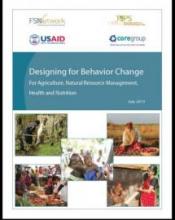Inclusive Social Accountability (ISA) Framework
Counterpart International’s Inclusive Social Accountability (ISA) developmental framework integrates elements of social inclusion and community accountability into one comprehensive approach. It is designed to be mutually supportive at every level — educating and allowing informed citizens to effectively hold their governments accountable, while simultaneously building the capacity of governments (and where necessary, their private sector partners) to deliver quality social services that are equitably distributed. The framework includes the building blocks of the ISA approach along with a number of methodologies that can facilitate its implementation.
Sectors
Democracy, Rights & Governance
Project Stages
Cross-cutting, Implementation, Monitoring & Evaluation, Project Design









